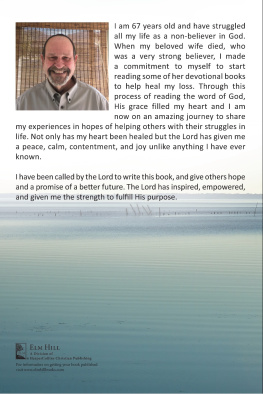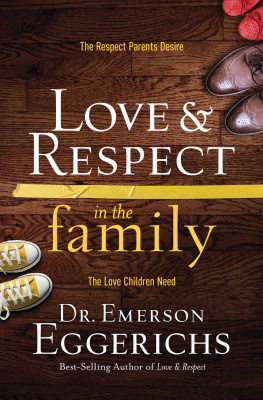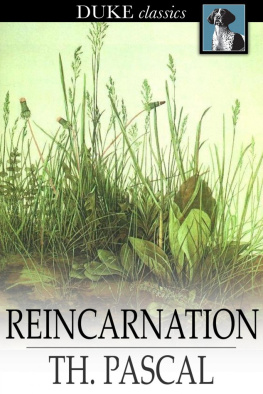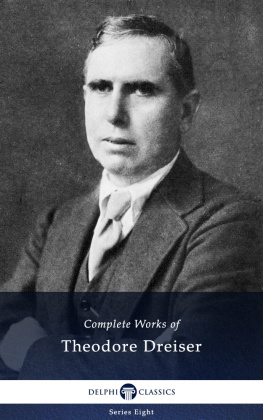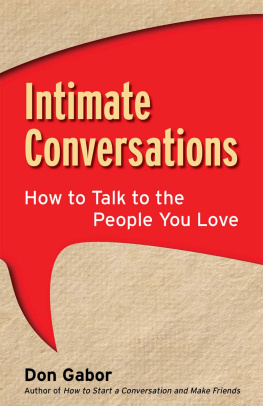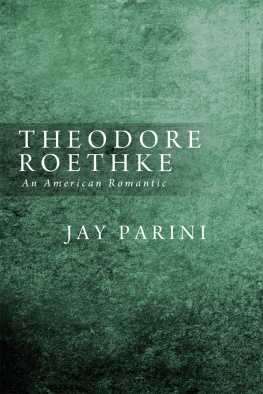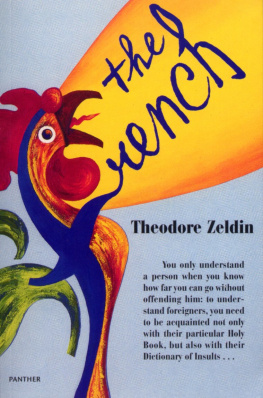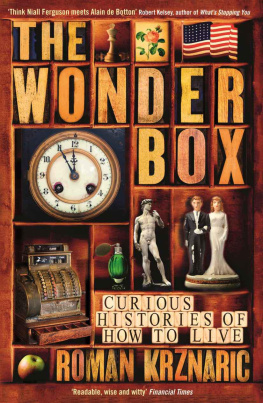Contents
About the Author
Theodore Zeldin, educated at Birkbeck College London and Christ Church Oxford, is senior fellow of St Antonys College Oxford. He has been awarded the Wolfson Prize for History, been elected a member of the European Academy, and figures on the Magazine Littraires list of the hundred most important thinkers in the world today.
About the Book
This extraordinarily wide-ranging study looks at the dilemmas of life today and shows how they need not have arisen. Portraits of living people and historical figures are placed alongside each other as Zeldin discusses how men and women have lost and regained hope; how they have learnt to have interesting conversations; how some have acquired an immunity to loneliness; how new forms of love and desire have been invented; how respect has become more valued than power; how the art of escaping from ones troubles has developed; why even the privileged are often gloomy; and why parents and children are changing their minds about what they want from each other.
Acknowledgements
This book is the result of help, stimulation and encouragement from many people. I should like to thank all those who have discussed their experience of life with me; each one has, in a different way, increased my respect for the human species. My colleagues at St Antonys College, Oxford, have shown me great kindness and freely shared their erudition with me. Journalists in different countries, who know far more than they publicly say or write, have generously given me valuable pointers in my local enquiries. Having spent a vast portion of my life reading books, my debt to other authors is immeasurable, as it is to the librarians and booksellers who helped me find them. I owe much to the business people, voluntary associations, politicians and public officials who, having invited me to discuss their aims or strategies with them, have enabled me to enter worlds normally closed to outsiders and to observe at first hand the practical problems which book learning cannot wholly grasp. Publishing has been made a pleasure for me by Christopher Sinclair-Stevenson, Claude Durand, Hugh Van Dusen, Christopher MacLehose, Jean-Bernard Blandinier, Eric Diacon, Roger Cazalet, Andrew Nurnberg, Robin Straus, as well as by Edith McMorran and Louise Allen. I have benefitted greatly from discussions with Christina Hardyment. And, as always, my wife Deirdre Wilson has shown inexhaustible generosity with ideas and encouragement. I do not know why people say that writing is a solitary occupation.
ALSO BY THEODORE ZELDIN
A History of French Passions
The French
Happiness
1
How humans have repeatedly lost hope, and how new encounters, and a new pair of spectacles, revive them
MY LIFE IS a failure. That is Juliettes verdict on herself, though she very rarely makes it public. Could her life have been different? Yes, just as the history of humanity could have been different.
She carries herself with dignity, observing all that happens around her, but keeping her reactions to herself. Only in brief moments, hesitatingly, will she reveal a little of what she thinks, which she does in whispers, as though truth is too brittle to be brought out of its wrappings. A glint in her eye says: You may think I am stupid, but I know I am not.
Juliette is fifty-one, and has been a domestic servant since the age of sixteen. She has so mastered the art of looking after a house, preparing and serving meals, that all overburdened mothers who catch a glimpse of her, and who can afford to, have the same thought: how can they persuade this paragon to work for them? Has she a few hours to spare? But though an ideal family help, she has been unable to cope with her own family. At work she is wholly reliable, taking endless care with every detail; but in her own home those qualities have never been sufficient.
Her mother was also a domestic servant. I have nothing to complain of, says Juliette. She brought us up very well, even if she did spank us. Widowed when Juliette was only seven, she went to work early and returned late: We didnt see her much. So Juliette fooled around rather than doing her lessons: I didnt see the point of school. She met no ally who cared for her specially, no mentor from outside her small world to help her, and she left with no paper qualifications, no entry ticket to anywhere.
At the age of sixteen, I did something stupid. So she married the father of her baby and had eight more children. Babies were pure joy to her; she loves to hug them; but only so long as they are babies. Once they grow up, They become difficult. Her husband was a handsome carpenter doing his military service, and at first he was nice to her: I was truly in love. But very soon things went wrong. When her first daughter was six months old, she discovered from her neighbours that he had a mistress. From then on there was no trust between them. He went out a lot, to visit the mistress, she always suspected; then he took to drink, working less and less, saying work was too tiring. He began beating her: I have scars all over my body. But she told nobody, she was so ashamed. When I saw him coming home through the garden, I was terrified. Why did she not leave him? I was too frightened. I was alone in his home town, where I knew nobody; I was cut off from my family after my marriage; I didnt see my sisters for fourteen years; he stopped me going out, and it was the children who did the shopping. He stopped me going even to my brothers funeral. I had no women friends any more. I went out only to work. And that, of course, meant she could not look after the children, who were farmed out to foster parents by the social services. The humiliation has left Juliette very sensitive. When people want to insult her, they say: You couldnt even bring up your own children. She protests, People shouldnt say things like that without knowing the facts.
I started hitting my husband back in the end; I should have done so earlier. It was a long time before she managed to leave him. He died one month after the divorce: I wasnt sad; indeed, I laughed. I laugh now, but when we were together, I didnt laugh. Ever since, she has worked with one purpose only: My aim in life was to own my own home. And recently she paid off the mortgage on her flat. It is the foundation of her pride, making her a stronger person. But she is too frightened to live alone, though she has tried to do so. Now she has a man with her: Its for security, not to be totally alone at night. Sometimes she would prefer to have no one at all, and she is adamant that she does not want to marry this man. In that Im like a young girl of today, for whom marriage is no longer essential. They get on because he is also a divorcee and wants peace. He does the cooking, and she does the shopping: she loves touring the markets on Sundays, just looking, and enjoying the feel of new cloth, which is like a dream unsullied by reality. Having her own money to spend gives her a great sense of freedom. He has bought his own country cottage, because she has made it clear to him that if they quarrel he will have to move out: she constantly reminds him that the flat is hers, and says defiantly, I can go out when I like, I can go and see a friend when I like.
They do not speak much. When she gets home in the evening, her pleasure is to rest, to lie alone on her bed in the dark. Never reading a book, and hardly ever watching television, she prefers instead to think, with the lights out, about her past life: her mother, her husband, her children, and the terror of unemployment. If a time came when there was no work for the children, that wouldnt be pretty. She is sad that their life will not be better than her own: It isnt fair. Her explanation is that there are too many foreigners in France, who take the work and the housing, which means the poor French have nothing. I dont want to criticise Arabs or blacks, but I think its unfair. Its because of them that my childrens life is hard. One daughter works in a factory, another at the prefecture of police, a third is a domestic servant, as though this family is condemned to the worst-paid jobs for all eternity.
Next page
![Theodore Zeldin [Theodore Zeldin] An Intimate History of Humanity](/uploads/posts/book/142226/thumbs/theodore-zeldin-theodore-zeldin-an-intimate.jpg)
